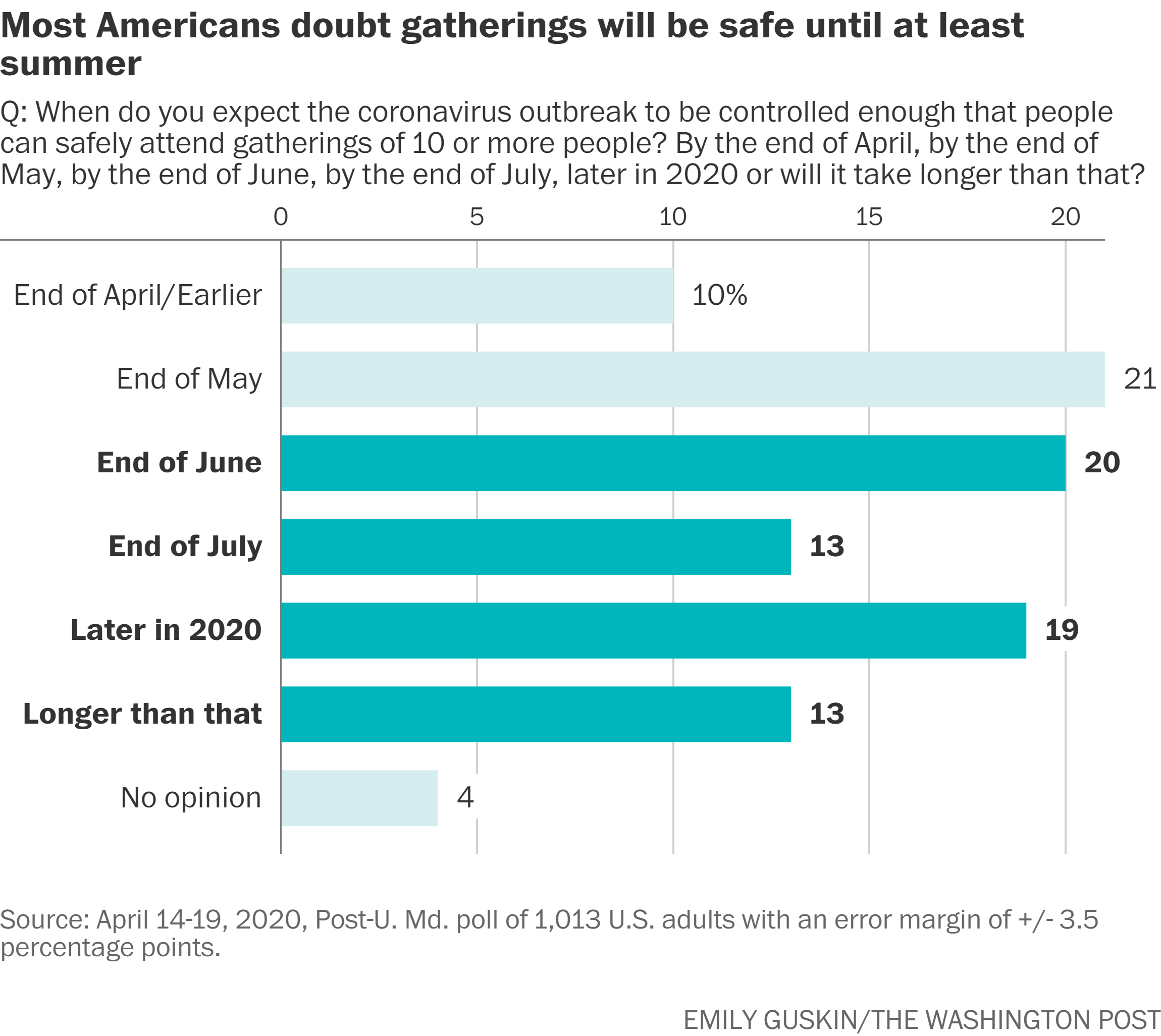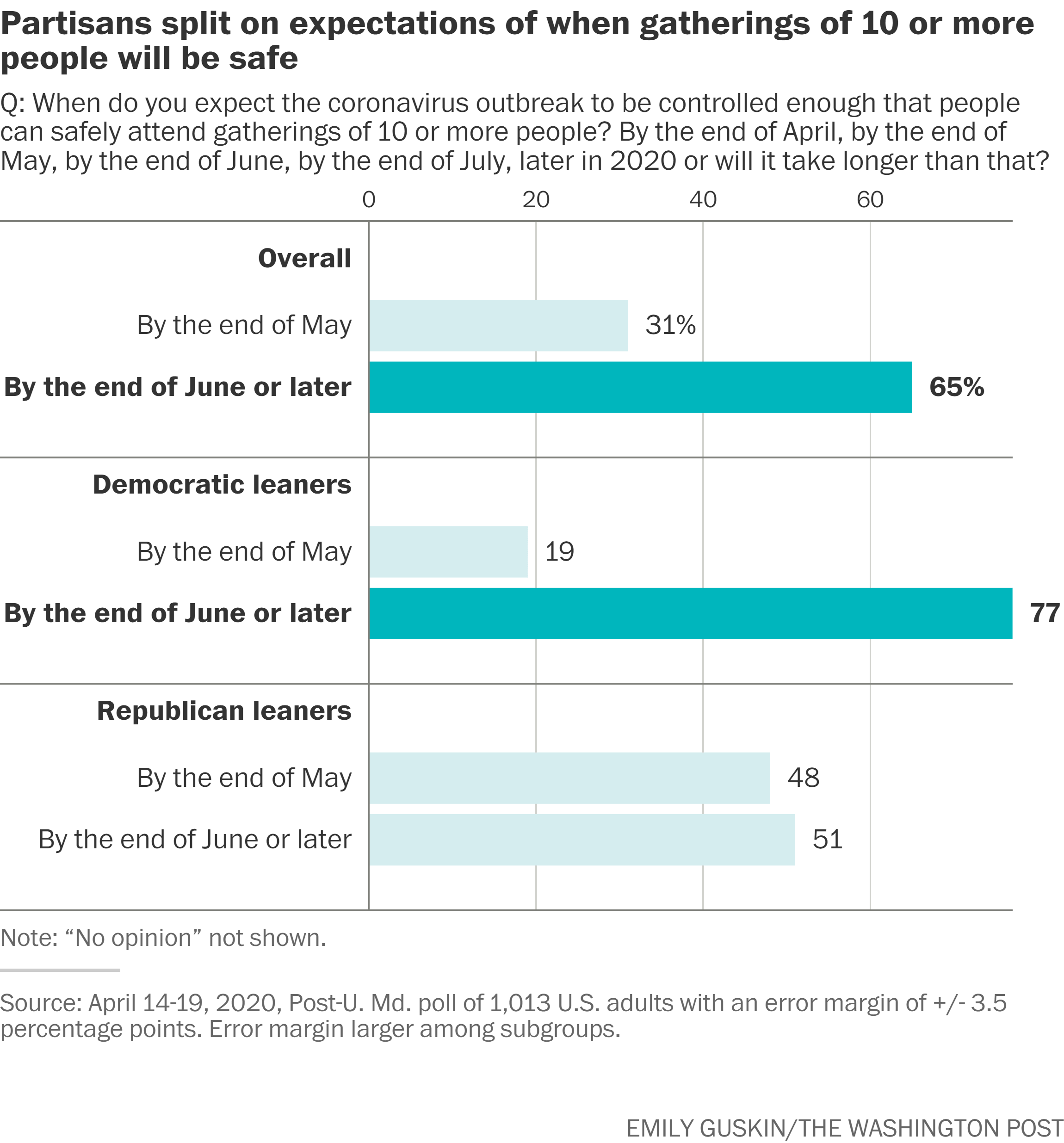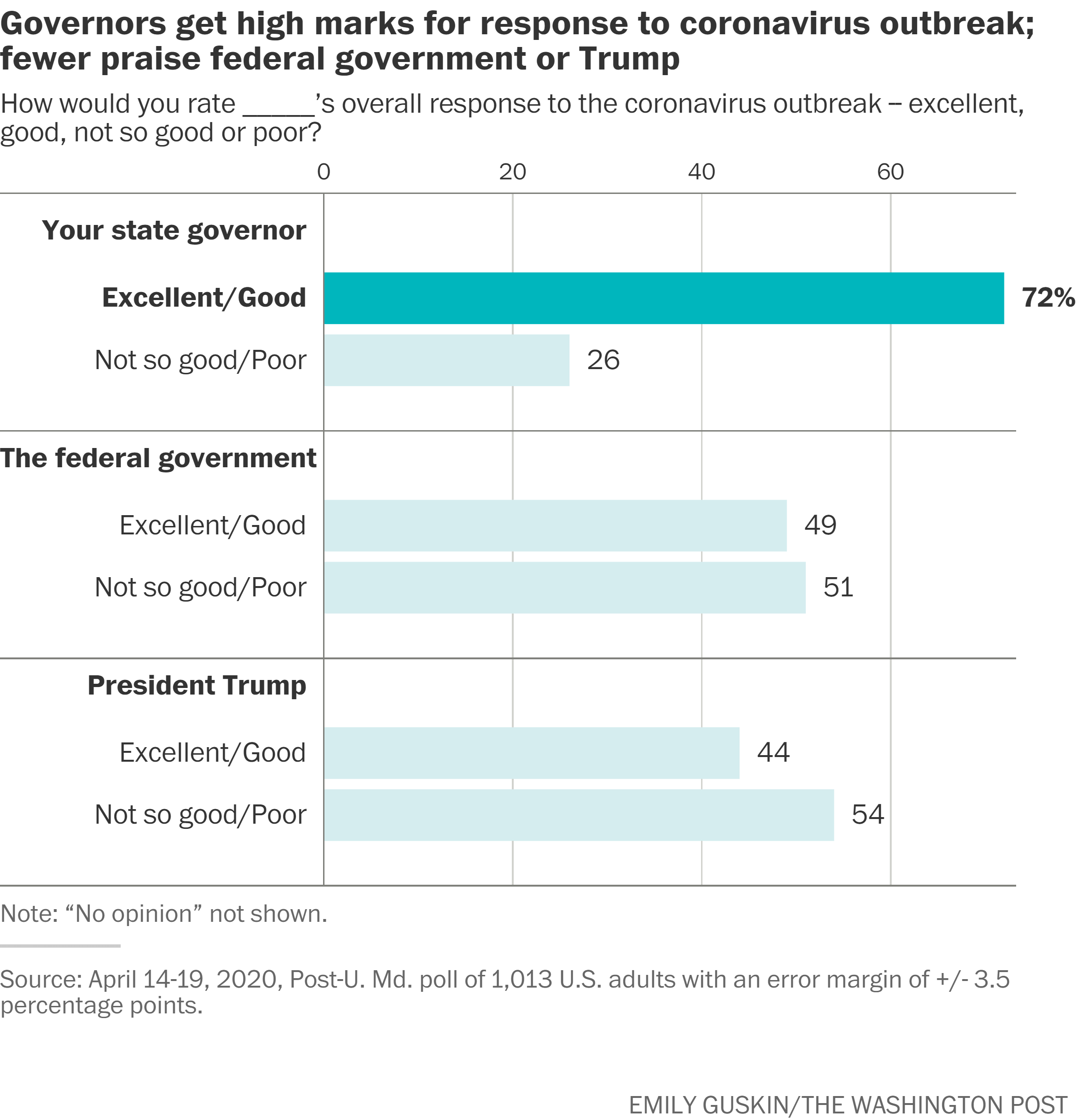- April 22, 2020
- By Sara Gavin
Roughly a third of Americans worry about how they will afford food and basic household items in the next month as COVID-19 keeps the U.S. economy shuttered, and most don’t expect public gatherings to be safe before summer, finds a new University of Maryland-Washington Post poll.
 The poll, which surveyed a random sample of 1,013 Americans April 14-19, also documented a large gap in the numbers of whites and nonwhites struggling financially: 48% of Hispanic and 39% of black respondents say they are concerned about being able to afford necessities, compared with 23% of whites.
The poll, which surveyed a random sample of 1,013 Americans April 14-19, also documented a large gap in the numbers of whites and nonwhites struggling financially: 48% of Hispanic and 39% of black respondents say they are concerned about being able to afford necessities, compared with 23% of whites.
“The survey reveals alarmingly high levels of financial hardship across the board, but especially among racial and ethnic minority populations,” said Michael Hanmer, a professor of government and politics, who co-directed the poll. “National and local leaders alike should take note.”
A clear majority of Americans don’t believe the economy or life in general will begin to return to normal in the next few months, although the poll documents differences in attitudes across partisan lines. While Republicans view President Donald Trump’s response to the pandemic favorably, 51% don’t believe it will be safe to gather in groups of 10 or more at least until June. Democrats and independents were significantly more likely (78% and 66%, respectively) to say that large gatherings will not be safe until the end of June or beyond.
 “To me, this suggests the optimism that often comes from White House press briefings has not penetrated the public consciousness,” Hanmer said.
“To me, this suggests the optimism that often comes from White House press briefings has not penetrated the public consciousness,” Hanmer said.
Most Americans—54%—rate the president’s handling of the outbreak in this country as “not so good/poor” and offer mixed reviews for the federal government as a whole. By contrast, 72% of Americans view their governor’s response to the crisis positively.
Meanwhile, 57% of Americans say they are “very” or “somewhat” worried about becoming infected and seriously ill from the coronavirus. An increasing proportion of the population knows someone who has been diagnosed: 26% of adults report a personal connection to an outbreak victim, up sharply from 11% in mid- to late March.
Americans are actively doing their part to stem the spread of the virus, according to the poll. Sixty-five percent report wearing a mask or face covering when leaving home in the past week, while 17 % say they did not leave home at all in that period.
 The poll, which has a margin of sampling error of plus or minus 3.5 percentage points, was conducted by the University of Maryland’s Center for Democracy and Civic Engagement (CDCE) and The Washington Post. It is the first of several surveys planned to track Americans’ views and experiences related to COVID-19.
The poll, which has a margin of sampling error of plus or minus 3.5 percentage points, was conducted by the University of Maryland’s Center for Democracy and Civic Engagement (CDCE) and The Washington Post. It is the first of several surveys planned to track Americans’ views and experiences related to COVID-19.
The survey offers an immersive learning experience for groups of UMD students: Terps in Hanmer’s seminar on political surveying methods and experience, for instance, contributed by suggesting ideas and drafting questions considered for the survey. Additionally, Alauna Safarpour, a Ph.D. student in government and politics, is serving as a fellow in news polling at The Post and helped evaluate the poll’s findings.
“This timely poll highlights the important work the CDCE is doing to better understand Americans’ attitudes about how the COVID19 crisis is affecting their lives,” said Stella Rouse, director of the CDCE and associate professor in the Department of Government and Politics. “Together with dedicated faculty and graduate and undergraduate students, we hope to continue doing work that pushes forward the mission of the center—advancing knowledge to help build better communities and improve the overall health of our democracy.”
Topics
Research